Let’s be honest, we’ve all been there. That moment when your stomach politely suggests you’re full, but your brain screams, “JUST ONE MORE BITE!” And then another, and another…
Next thing you know, you’re loosening your belt and contemplating a nap instead of, you know, being a functioning human.
If this sounds familiar, you’re not alone. Overeating happens. But it doesn’t have to be your default setting.
1. Eat From Smaller Plates
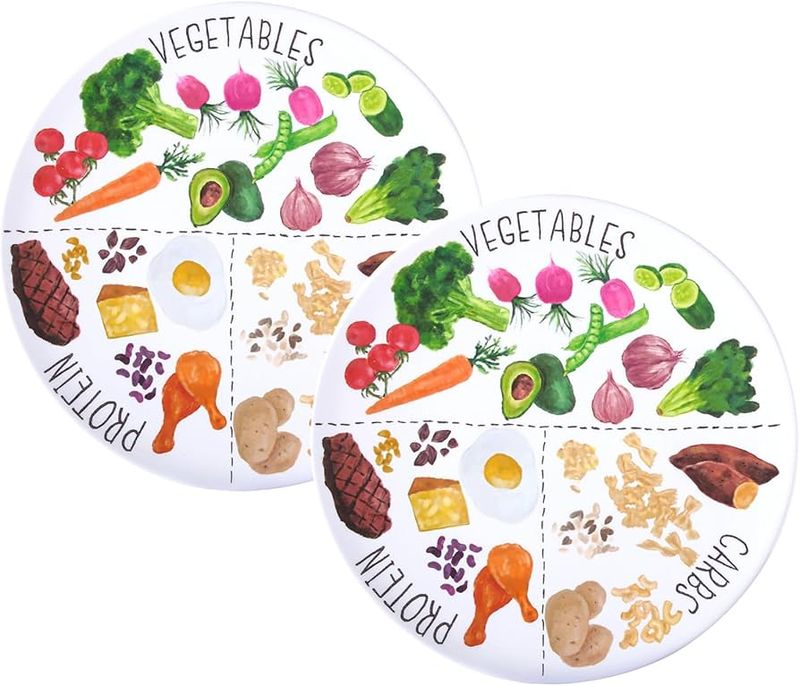
Your brain plays tricks on you! Research shows we eat about 22% less food when using smaller dishes.
The same portion looks massive on a salad plate but tiny on a dinner platter. This visual hack works because we naturally fill our plates and then feel obligated to finish everything.
2. Drink Water Before Meals

Gulp down a full glass of water 30 minutes before eating. This simple trick activates stretch receptors in your stomach, sending “I’m getting full” signals to your brain before you even pick up a fork.
Many people mistake thirst for hunger, leading to unnecessary snacking. Stay hydrated!
3. Slow Down Your Eating
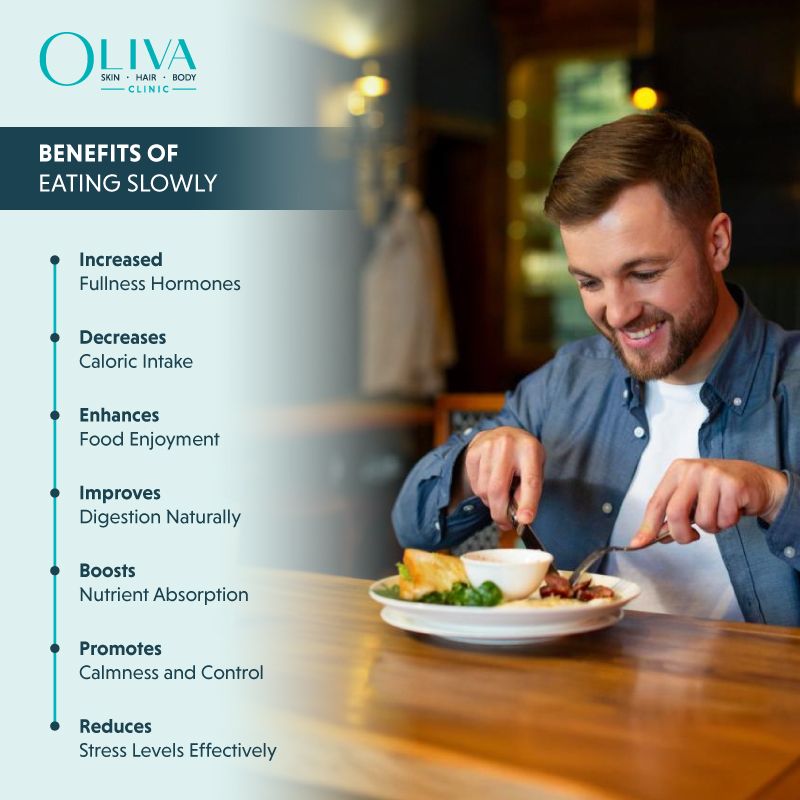
Racing through meals? Your body’s fullness signals need about 20 minutes to kick in. Put your fork down between bites. Chew thoroughly.
Notice flavors. Speed eaters typically consume 60% more calories! Try timing yourself—aim for at least 20 minutes per meal.
4. Keep A Food Journal
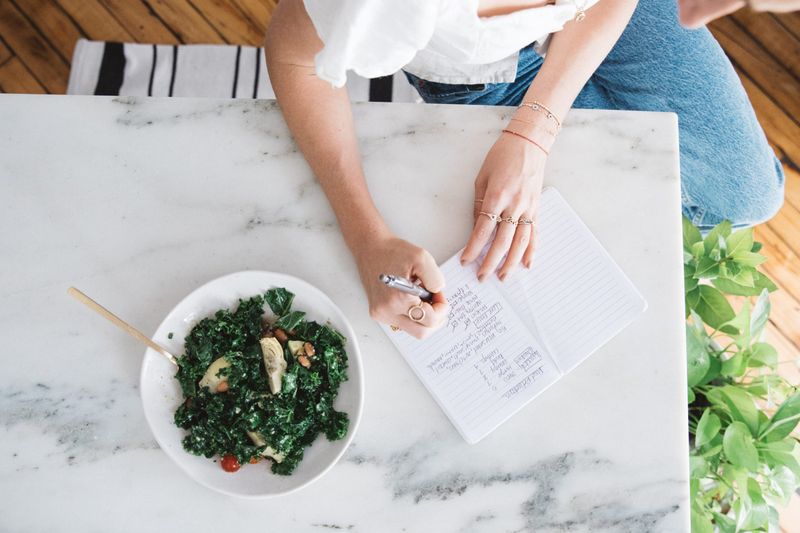
Grab a notebook and track everything—yes, even that handful of chips! Writing down what you eat creates instant accountability and reveals hidden patterns.
Studies show people who log their meals consume about 15% fewer calories. Don’t judge yourself—just document honestly.
5. Ban Eating In Front Of Screens
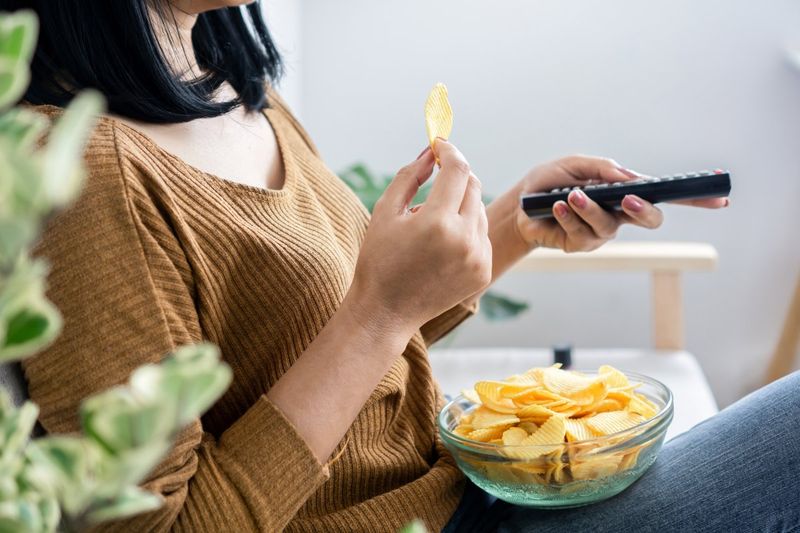
Netflix and munch is a dangerous combo! When your attention is split between your food and that thriller series, your brain doesn’t properly register what or how much you’ve eaten.
Distracted eaters consume up to 25% more calories. Create a screen-free dining zone where food—and only food—is the main event.
6. Manage Stress Without Food

Stress triggers comfort eating for many of us. Cortisol, that pesky stress hormone, actually increases appetite and cravings for sugary, fatty foods.
Build a stress-busting toolkit that doesn’t involve your fridge. Try a quick walk, deep breathing, or calling a friend.
7. Sleep Your Way To Better Appetite Control

Skimping on sleep is a recipe for overeating disaster! Just one night of poor sleep can increase hunger hormones by 15% while decreasing fullness signals.
Your sleepy brain craves quick energy (hello, donuts and chips). Prioritize 7-9 hours of quality sleep to keep hunger hormones balanced and willpower strong.
8. Protein-Pack Your Meals

Protein is your secret weapon against overeating! Your body actually burns more calories digesting protein compared to fats or carbs.
Plus, it triggers satisfaction hormones that carbs simply can’t match. Aim for protein at every meal—eggs at breakfast, chicken at lunch, beans at dinner.
9. Ditch The Clean Plate Club
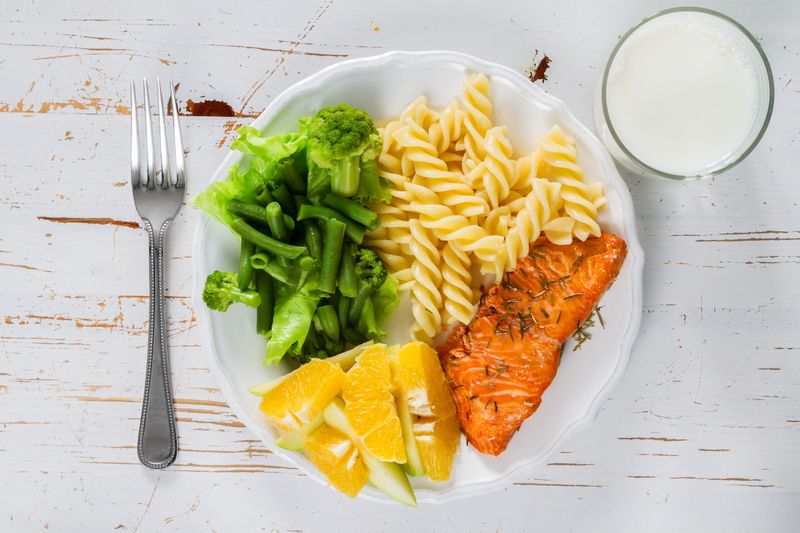
“Children are starving somewhere” isn’t a reason to stuff yourself! That childhood programming to finish everything on your plate is sabotaging your health.
Give yourself permission to leave food behind. Start with smaller portions—you can always get seconds if truly hungry.
10. Plan Meals In Advance
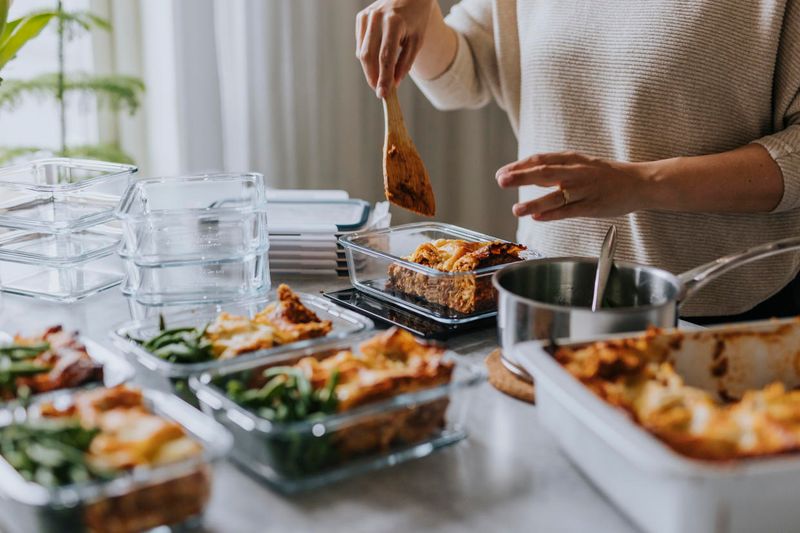
Hunger makes terrible food decisions! When your stomach is growling and your blood sugar is crashing, that drive-thru looks mighty tempting.
Spend 30 minutes each weekend planning your meals. Prep ingredients when possible.
11. Create A Kitchen No-Go Zone

Declare your kitchen closed after dinner! Nighttime snacking accounts for an extra 500 calories daily for many people.
This simple boundary helps break the mindless munching cycle. Try brushing your teeth right after dinner—the minty taste signals your brain that eating time is over.
12. Remove Trigger Foods From Home
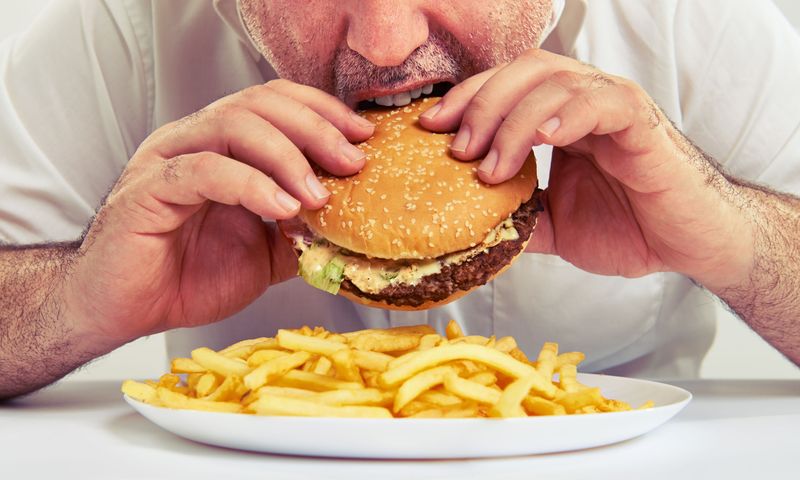
Willpower is exhausting! Don’t test it by staring down your favorite chips all day. We eat what’s convenient, not just what we crave.
Be honest about your personal trigger foods—those items you literally cannot stop eating once started. Keep them out of your home entirely.
13. Use The Hunger Scale
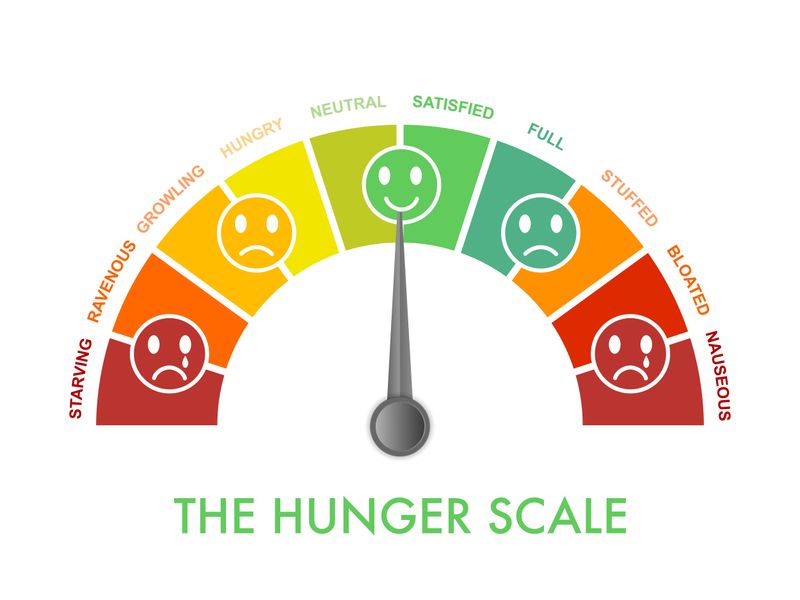
Rate your hunger from 1 (starving) to 10 (uncomfortably stuffed). Aim to start eating around 3 and stop at 7.
Most overeating happens when we wait until we’re ravenous or eat until we’re stuffed. This simple 1-10 system reconnects you with your body’s natural hunger and fullness cues that processed foods have overridden.
14. Practice Mindful Eating
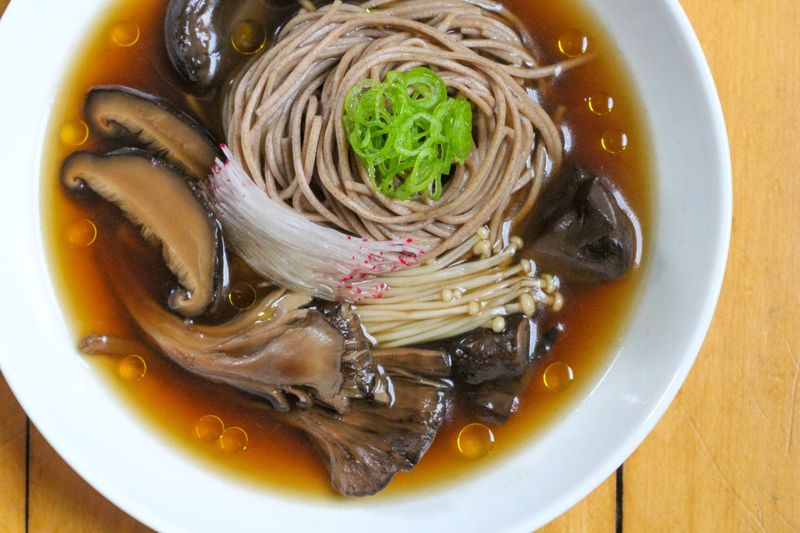
Engage all five senses while eating! Notice the colors on your plate. Smell the aromas. Feel textures. Taste subtle flavors.
Even listen to the crunch! Start with just one mindful meal per week. You’ll be amazed how satisfying food becomes when you’re fully present.
15. Address Emotional Eating Patterns
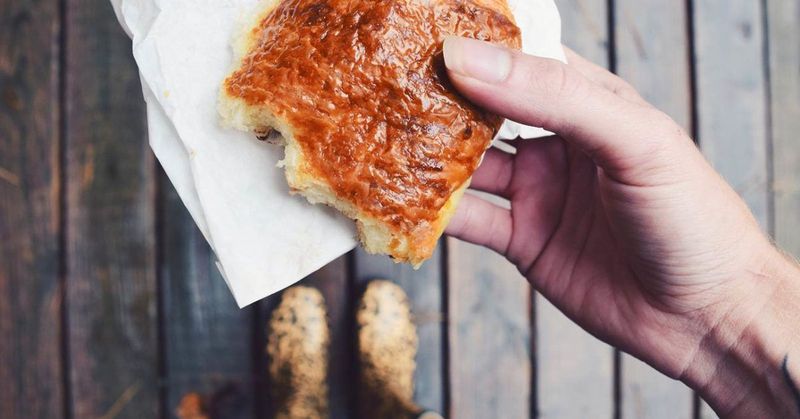
Food was never meant to fix feelings! Create an “emotion menu” listing activities for different emotional states. Sad? Call a friend. Bored? Try a hobby. Stressed? Take a walk.
Keep a simple journal noting what you feel before eating.
16. Use Visual Portion Guides
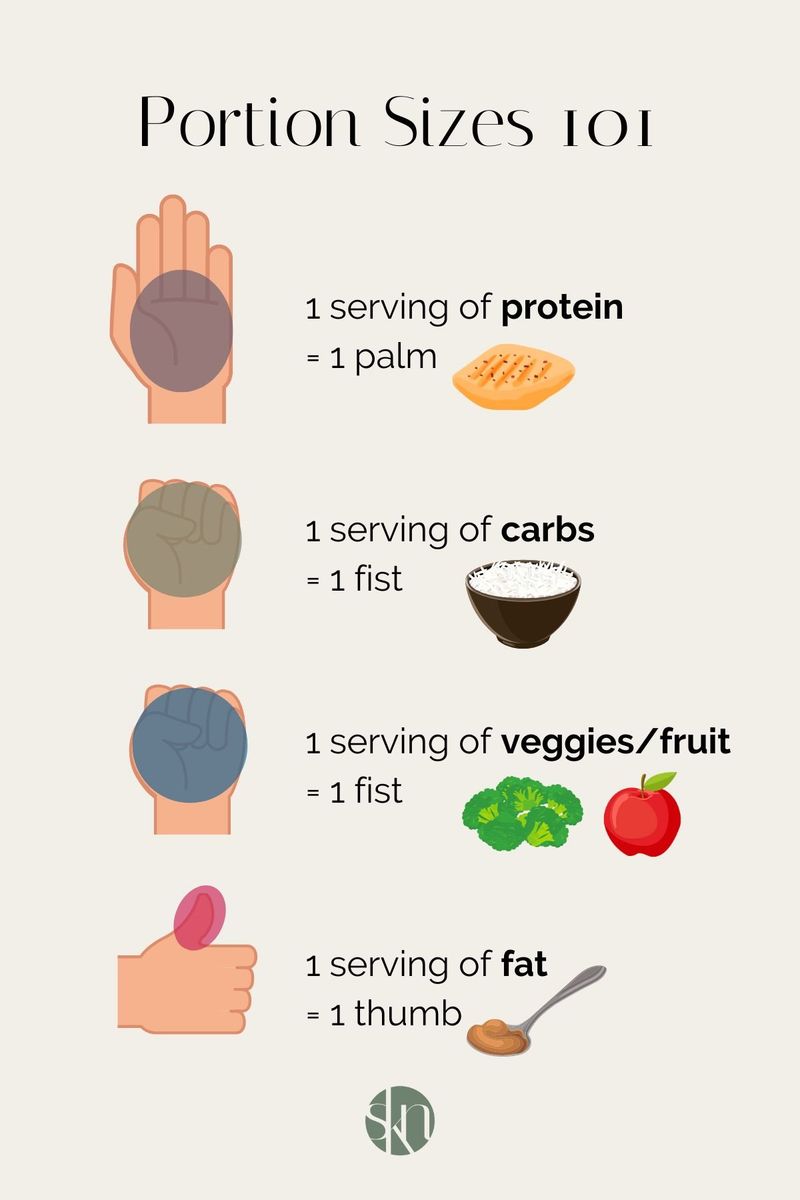
Forget complicated calorie counting! Your hand is the perfect portable portion guide. Your palm = protein serving. Cupped hand = carbs portion.
Thumb = healthy fats. Fist = veggies. This simple system works anywhere—restaurants, parties, or home. No measuring cups required!
17. Stop The Three-Bite Rule

Most taste satisfaction happens in the first three bites of any food. After that, you’re eating out of habit, not pleasure. Try the three-bite dessert rule—savor three exquisite bites rather than mindlessly finishing.
This works for any indulgence! You’ll get maximum enjoyment with minimum calories.
18. Create Eating Rituals

Random snacking leads to calorie amnesia! Establish concrete eating rituals—always use a plate, sit at the table, and put your phone away.
No standing at the fridge or eating from packages. These small boundaries make each eating occasion intentional.

